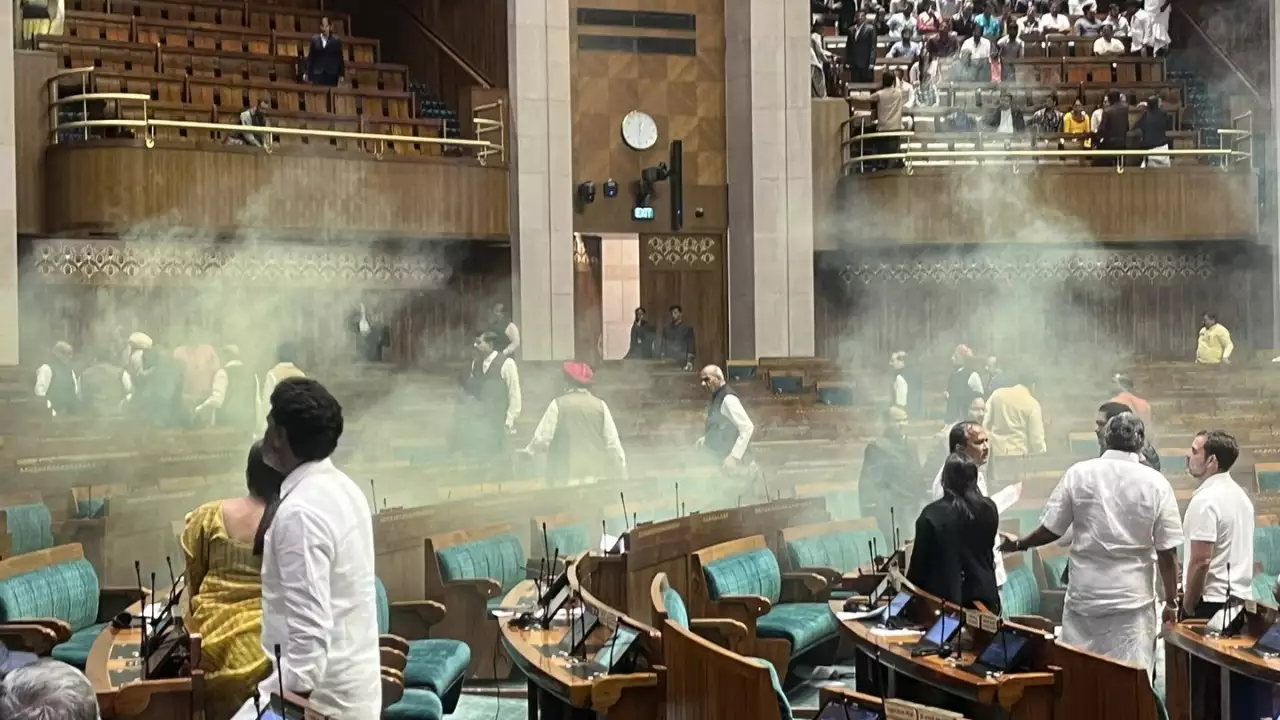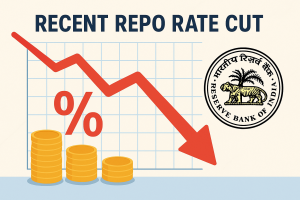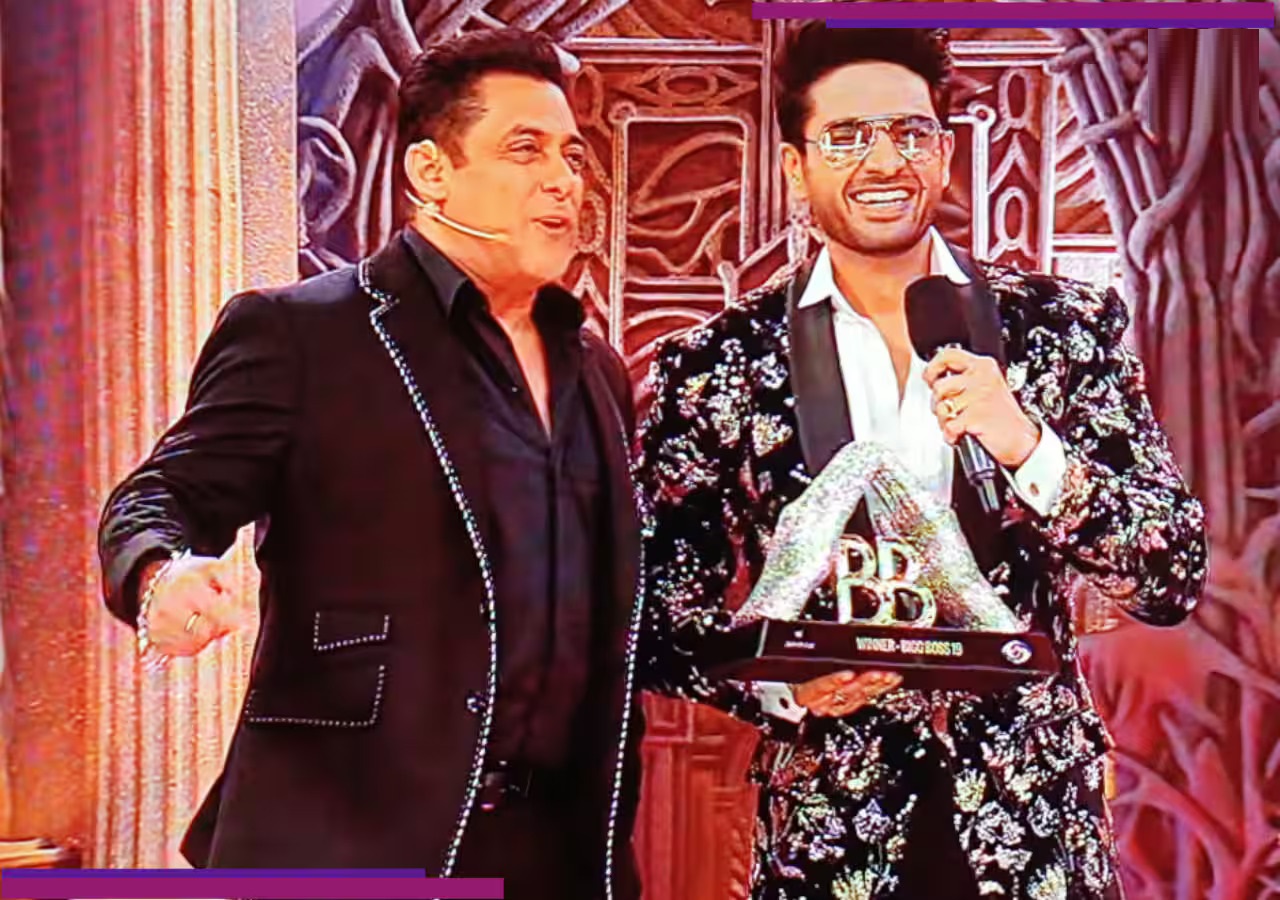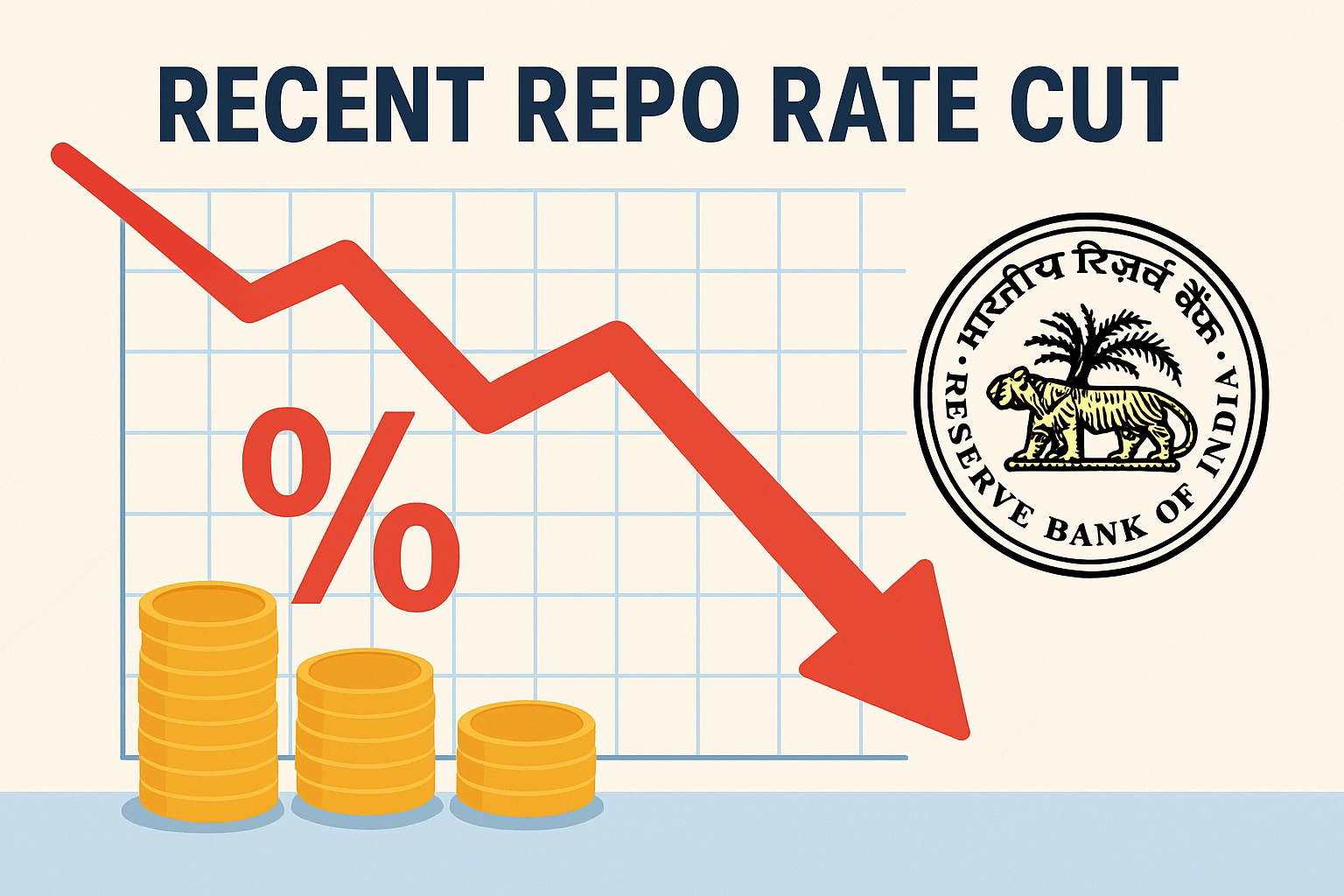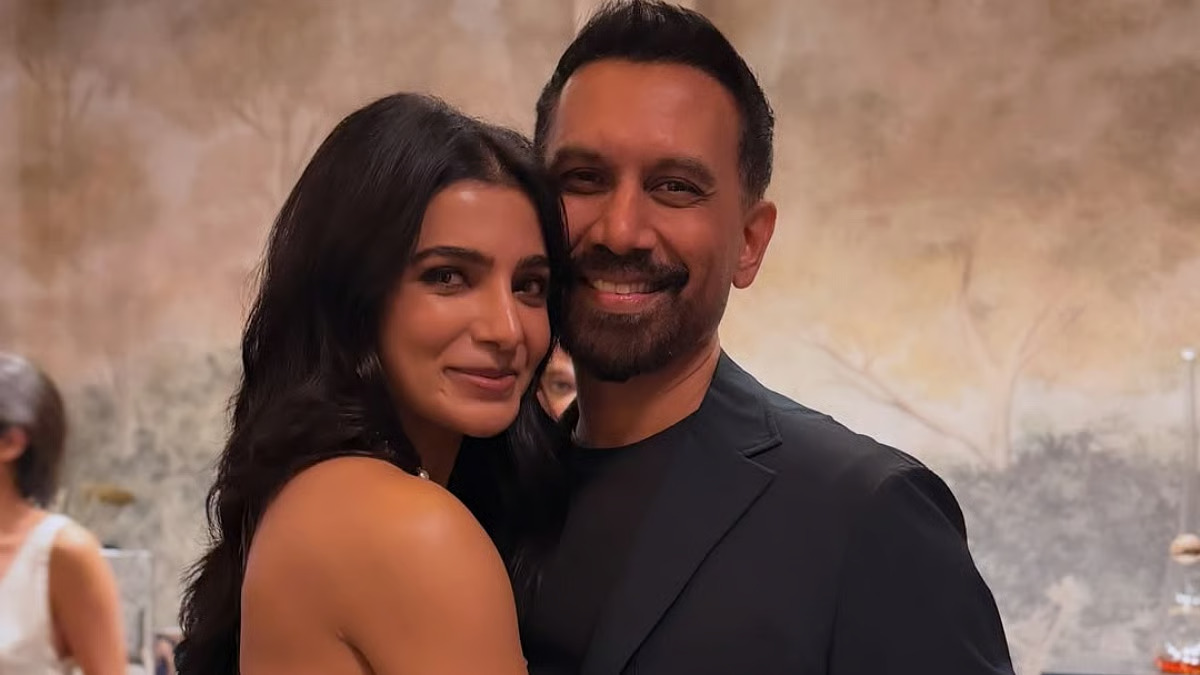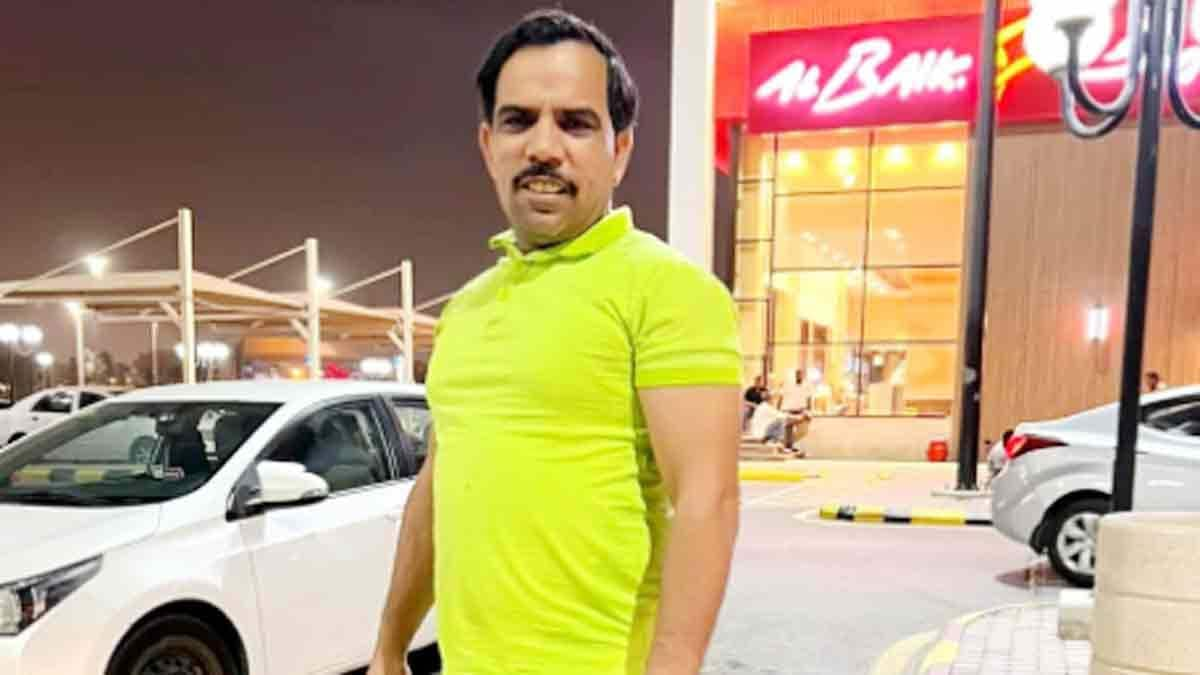Parliament Attack: In a shocking turn of events, the Lok Sabha, India’s esteemed parliamentary institution, was thrust into turmoil on a recent Wednesday as two audacious youths orchestrated a major security breach. The incident unfolded eerily on the 22nd anniversary of the infamous terrorist attack that shook the Parliament on December 13, 2001. In this article, we’ll be covering – Lok Sabha security breach time, Lok Sabha security breach reason, and the Parliament security lapse!
Lok Sabha Security Breach News
Associate Editor Shishir Sinha, an eyewitness to the breach, shared a harrowing account with V Nivedita during a revealing podcast discussion. The breach occurred during the crucial Zero Hour of the parliamentary session when two individuals, seemingly undeterred, leaped from the visitor gallery to the hall below. Their disruptive act included the deployment of a smokescreen, further intensifying the atmosphere of panic within the Lok Sabha.
Parliament Security Breach Accused & their Approach
The intruders, vocalizing slogans against dictatorship and passionately advocating for the safeguarding of the constitution, raised concerns about the sanctity of the parliamentary space. Shishir Sinha vividly described the chaos that ensued, recounting the arrest of four individuals, two apprehended from inside the Parliament and two from outside.
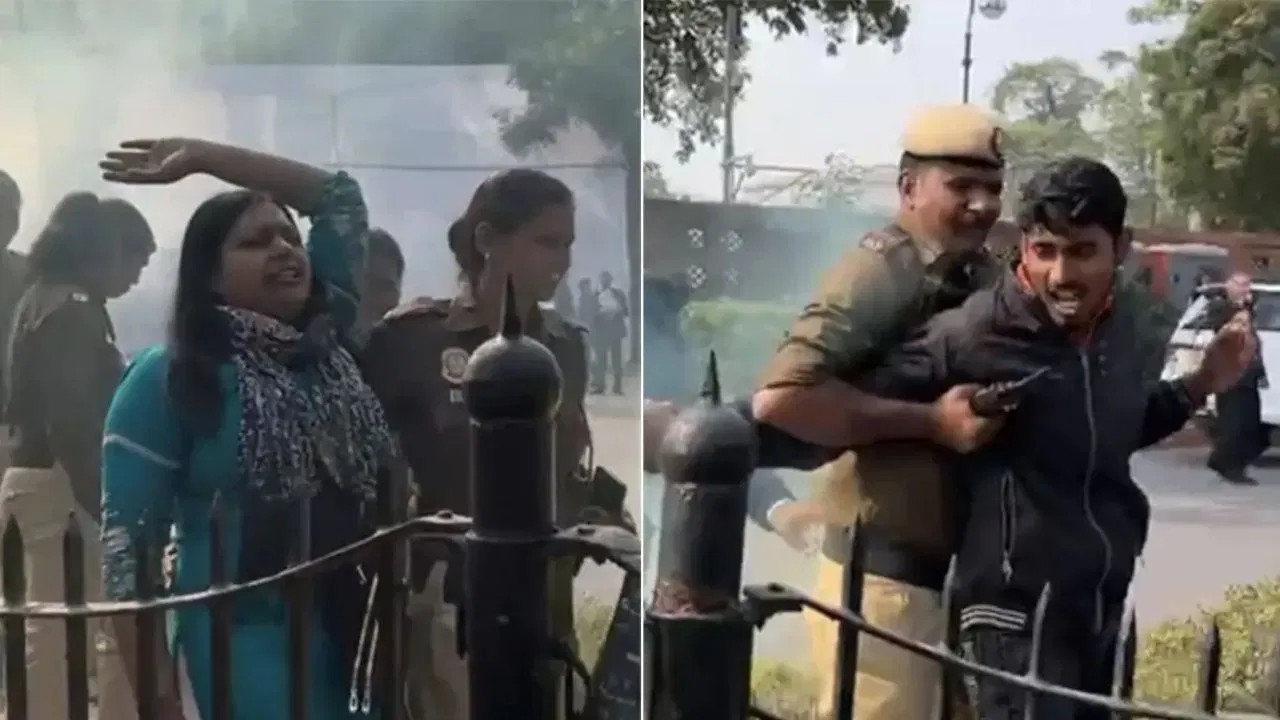
The slogans reverberated with calls to end dictatorship and fervent claims of patriotism, capturing the attention of the 40–50 Members of Parliament present, including several ministers on roster duty. The intruders’ audacious attempt to approach the front row heightened the gravity of the breach, prompting reflections on the vulnerability of one of India’s most sacred democratic institutions.
Parliament Security Breach 2023 – Something No One Was Ready for!
Sinha drew unsettling parallels between this recent security breach and his traumatic experience during the 2001 terror attack on the Parliament. He emphasized the professional nature of the intrusion, underscoring the need for heightened vigilance and security measures to prevent such incidents in the future.
When pressed about existing security measures, Sinha acknowledged advancements such as barcode readers and holograms on passes, hinting at potential enhancements to security protocols in the aftermath of this breach. The implications of this breach extend beyond the immediate incident, raising questions about the adequacy of current security infrastructure and the evolving threats faced by the Indian Parliament.
Conclusion
As the nation grapples with the aftermath of this unprecedented breach, the incident serves as a stark reminder of the constant need for vigilance and adaptation in safeguarding the heart of India’s democratic process. The echoes of the past reverberate, urging a comprehensive reassessment of security measures to ensure the sanctity of the Indian Parliament remains inviolable.


